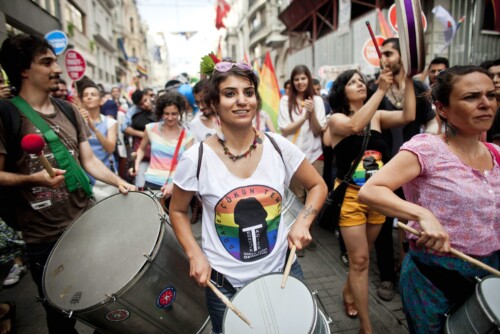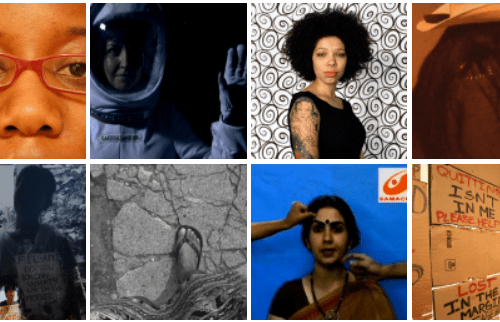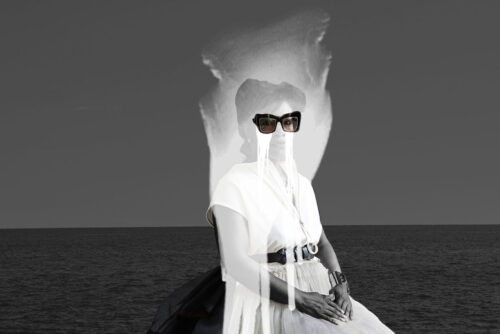In our historical moment, activism for gay, lesbian, and transgender rights, on the one hand, and political homophobia and the targeting of gender non-conforming people, on the other, are both in wide global production and circulation. 1 Advocacy for gay rights in the Global South has increasingly become a new field of action for the Global North, reproducing what Teju Cole has called a “white savior” structure that exacerbates the very questions of sovereignty that have often made LGBT rights in the Global South such a fraught, politicized issue. 2 As many critics have pointed out, this vision of international activism, in which human rights discourse is imbricated with histories of imperialism, understands the West to be a separate entity from the rest of the world, existing in a more “forward-thinking” modernity, and disavows the deep, ongoing entanglement of the Global North in the creation of homophobia and gender policing around the world. It also overlooks other varied, multidirectional histories of transnational activism around sexual orientation and gender expression. This special issue aims to bring into view some of the rich interdisciplinary work currently being produced on these alternative activist routes and forms.
This introduction will analyze the turn to global gay activism on the part of the Global North and briefly survey the critique of gay human rights; propose a series of transnational genealogies for the contemporary global homophobias with which activists grapple, examining strategic “political homophobia,” popular homophobia or related “sex panics,” 3 and how discourses and technologies of “security” that move transnationally enable the targeting of queer people; 4 and highlight the diverse forms that queer activism across borders has taken historically and in the present, which the contributors we bring together in this special issue explore. Collectively, our contributors expand and complicate the critique of the discourse of human rights as LGBT rights by examining specific histories of activism across borders, both within international organizations and outside them; analyzing how activists have negotiated and translated the arrival of transnational formations from local standpoints; and showing how queer migrants themselves have forged modes of political action. They thus offer a historically grounded alternative set of queer activist strategies. 5
The need for accounts of queer transnationalism that counter, rather than reproduce, the hierarchies of neo-imperialist forms of globalism is particularly urgent right now, as an alternative both to modes of gay rights activism that we might call “neoliberal tolerance” and the rising assertion of patriarchal, homophobic, and transphobic authoritarianisms in disparate locations around the globe. The symposium 6 from which this special issue stems was motivated, in part, by the desire to enable our students, at a university in the United States, to think critically about their desire to “help” queer people in the rest of the world, while encouraging their internationalist “structure of feeling.” 7 The increasing vulnerabilities queer people face globally have a complex relationship to the highly visible emerging legal equality and social normativity of LGBT people in North America and Europe, not to mention the global circulation of myriad cultural products from the Global North depicting queer lives. This means that those of us living in those regions and benefiting from the political and cultural gains of the present moment are arguably implicated in what is unfolding elsewhere. We are aware that our identities as two cis-gender, white, European, queer women (one British, the other Spanish) and our position as scholars working in the USA marks all the choices made in the composition of this special issue and its goals. Hence, although we hope this issue will be of interest to a variety of readers including scholars and activists across the world, our primary goal is to encourage queer readers from the Global North to re-think the mainstream narrative about international activism generated in the West and to open their ears and minds to the voices, strategies, and debates of activists from the Global South.
Global Gay Rights: Critiques, Possibilities
The global media has increasingly brought to public attention a selective cartography of violence and discrimination faced by same-sex loving and gender-nonconforming people—for example, in order of media emergence, homophobic dancehall lyrics and mob violence in Jamaica; 8 the “corrective” rape of lesbians in South Africa; 9 the new, extreme anti-gay laws in Uganda, Nigeria, and Russia; 10 the execution of men accused of being gay by the so-called Islamic State in what activist and writer Scott Long calls acts of “atrocity advertising”; 11 and the recent abduction, detention, torture, and execution of gay men in Chechnya. 12 In the period between the achievement of marriage equality and the election of Donald Trump, LGBT rights organizations in the Global North began to think more globally, and new internationally focused organizations and programs emerged. 13 The Human Rights Campaign (HRC), for instance, announced a new international program in 2013, funded by Republican hedge fund managers Paul Singer and Daniel S. Loeb. 14 As Long has pointed out, Loeb made his billions by inventing “vulture funds,” which make money from third-world debt, thus pushing countries already in turmoil into bankruptcy. 15 This dubious collaboration highlights how gay rights advocacy can be used to reinforce the US’s self-positioning as global superpower, making moralizing interventions abroad that render invisible—or “pinkwash”—the role the US, and the Global North at large, has played in destabilizing and impoverishing other countries.
Rafael De La Dehesa’s examination in this issue of the exchanges between a Brazilian and a Scotsman involved in the International Lesbian and Gay Association in the 1970s remind us that transnational collaborations are inevitably haunted by power disparities rooted in imperial pasts; as he puts it, “These histories cast long shadows across the geopolitical landscape.” Gay advocacy from the Global North can thus reproduce the dilemmas of human rights discourse at large. Legal scholar Makau Mutua gets to the heart of the problem in an important 2001 essay: “The human rights movement is marked by a damning metaphor. The grand narrative of human rights contains a subtext that depicts an epochal contest pitting savages, on the one hand, against victims and saviors, on the other.” 16 In this racialized contest over who gets to judge what counts as a human right, postcolonial regimes often wield reductive and reified notions of “culture” and “tradition” to push back against pressure to institute human rights reform, and to avoid losing ground nationally to even more socially conservative power-brokers. Forms of backlash are thus produced against stigmatized subjects, particularly in the context of transnational economic forces. 17 As Ayo O. Coly argued in relation to former President Obama’s pro-gay rights comments in Kenya in 2015, “Obama stepped into a complex sociopolitical layout whose bearings on the LGBTQ issue has constantly eluded Western advocates of LGBTQ rights in Africa. This weak grasp of the issue often dooms their advocacy work to failure or worse, to homophobic appropriation.” 18 Ashley Currier’s Out in Africa explores how lesbian rights activists in South Africa and Namibia deploy strategic forms of visibility and invisibility precisely to navigate this difficult terrain, indicating that the emphasis on “coming out” in mainstream Western gay activism should not be understood as a universally applicable strategy. 19 Visibly Western advocacy and deployment of global publicity, then, can have counterproductive effects. Joseph Massad’s well-known critique goes further; he argues that the introduction of the concept of homosexuality as an identity by what he calls “the gay international” has had pernicious effects in the Middle East, effecting a form of epistemic violence on queer ways of understanding sex between men, as well as making men who have sex with men the newly legible target of actual violence. 20
Of course, many locations in the Global South have long histories of their own transformative engagement with the idea of human rights; in South Africa, for example, the inclusion of protection against discrimination on the grounds of sexual orientation in the 1996 post-apartheid constitution was, in part, the result of the deep, long-standing investment in human rights by the anti-apartheid movement—an investment that arguably made human rights discourse at large more meaningful. Mutua ultimately advocates not for an abandonment of the concept of human rights, but for a “political” human rights movement that is informed by multiple cultural traditions. 21 These now long-standing critiques of human rights have circulated widely, and in this issue, as well as in his book, 22 Ryan Thoreson looks at how people working in an international LGBT rights organization shape what “human rights” means in practice, from a perspective that is often informed by a critical view from the Global South.
When states take on gay rights, however, it is inevitably infused with wider foreign policy agendas—or indeed can be at odds with other priorities. The Obama administration’s historically unprecedented advocacy of gay rights, for example, was exemplified by then-Secretary of State Hillary Clinton’s 2011 “Remarks in Recognition of International Human Rights Day,” in which she called for “a global consensus that recognizes the human rights of LGBT citizens everywhere.” 23 These developments were, in many ways, a remarkable achievement on the part of LGBT activists. However, the March 3, 2016, tragic murder of Honduran environmental activist Berta Cáceres exemplified the limits of this official US gay-rights rhetoric. In 2009, Clinton supported the military overthrow of Honduran president Mel Zelaya, a democratically elected leader who had met with LGBT activists and initiated an assembly to write a more inclusive national constitution. 24 The day after the coup, there were widespread non-violent protests, and two transgender women who had taken part in the protests were murdered as they returned home—the first of hundreds of LGBT activists to be killed by state agents over the next few years. 25 US support for resource-rich Honduras, including aid to their security forces, quietly continued since then—just as US support of post-coup Egypt has continued despite President Sisi’s “moral” campaign against gays, 26 and continues still as we transition into the Trump presidency. 27
Indeed, the gains that have been made in the Global North itself have come to seem fragile and paradoxical, as Éric Fassin has pointed out in his public advocacy and academic work about rights for sexual and racial minorities in the EU. 28 Currently, in the wake of the election of Donald Trump and the rise of a populist, racist right-wing across Europe that sometimes aligns itself with homophobia and sometimes deploys gay rights rhetoric, we are faced with a volatile, contradictory approach to queer issues. As Phillip M. Ayoub discusses in an interview for this issue, the sense that “European values” include gay rights has been widely culturally accepted, and gay rights have been incorporated into EU legal structures. 29 However, this very idea of “European tolerance” is obviously open to racist appropriation in the era of “Fortress Europe,” as we saw with Marie Le Pen’s appeal to gay voters in the recent French elections. 30 As Graeme Reid, director of LGBT rights at Human Rights Watch points out in an interview for this issue, after the June 12, 2016 shooting at the Orlando Pulse nightclub, Trump presented himself as more able to “protect” LGBT Americans from Islamic fundamentalist violence than Hillary Clinton, 31 thus deploying an ostensibly pro-gay attitude to demonize Muslims and immigrants. Since then, he has stacked his administration with political figures from the religious right keen to strip rights from LGBT people, tried to shut down refugee programs that provide an avenue of “protection” for queer people from other countries seeking asylum, 32 and shows no signs of holding his growing global circle of authoritarian allies to account for human rights abuses of any kind. Trump’s intermittent deployment of gay rights in the name of anti-Muslim sentiment borrows from politicians across Europe, exemplifying how sexual politics of many kinds can move transnationally.
- We would like to thank an anonymous reviewer and S&F Online’s Tami Navarro for their thorough reading of our introduction to this issue and their very helpful suggestions for improvement. Thank you also to S&F’s Alison Osworth for her editorial and logistical support. We are also very grateful for the crucial work of the contributors to this issue.[↑]
- Teju Cole, “The White-Savior Industrial Complex,” The Atlantic,March 21, 2012, accessed 27 July 2014. http://www.theatlantic.com/international/archive/2012/03/the-white-savior-industrial-complex/254843/.[↑]
- See Gayle S. Rubin, “Thinking Sex: Notes for a Radical Theory of the Politics of Sexuality,” in Pleasure and Danger: Exploring Female Sexuality, Carole S. Vance, ed. (Boston: Routledge and Keagan Paul, 1984), 267-319. In this classic essay, Rubin also uses the terms “sex conflict” and Jeffrey Weeks’ “moral panic” to discuss historical periods during which “sexual activities often function as signifiers for personal and social apprehensions to which they have no intrinsic connection. During a moral panic, such fears attach to some unfortunate sexual activity or population. The media become ablaze with indignation, the public behaves like a rabid mob, and the state enacts new laws and regulations. When the furor has passed, some innocent erotic group has been decimated, and the state has extended its power into new areas of erotic behavior.” 294.[↑]
- See Paul Amar, The Security Archipelago: Human-Security States, Sexuality Politics, and the End of Neoliberalism (Durham: Duke University Press, 2013).[↑]
- In providing an alternative transnational LGBTQ activist agenda, this special issue expands on the domestically focused “New Queer Agenda” that Joseph N. DeFilippis, Lisa Duggan, Kenyon Farrow, and Richard Kim proposed in their Fall 2011/Spring 2012 special issue of this journal: A New Queer Agenda [↑]
- We thank the Center for the Humanities at University of Miami and its director, Mihoko Suzuki, and Zureyka M. Carsi, graphic designer, for the logistic and economic support to organize this symposium, and the other funding co-sponsors: the Women’s & Gender Studies Program, the Modern Languages and Literatures’ Carter Fund, the Department of Anthropology, the Department of English, the College of Arts and Sciences, the Office of Civic and Community Engagement, the American Studies Program, the Center for Latin American Studies, and the Africana Studies Program; our co-organizer of that symposium, Pamela Geller from the Department of Anthropology at University of Miami; and the participants in that symposium for providing the inspiration for this special issue: Paul Amar, Rafael de la Dehesa, Kenyon Farrow, R. Lucas Platero, Graeme Reid, Dean Spade, Maurice Tomlinson, and Ruth Vanita. Videos from this symposium can be found here: http://www.as.miami.edu/humanities/publicprograms/symposia/past/thinking-queer-activism-transnationally/.[↑]
- The concept of “structures of feeling” was developed by Raymond Williams across several of his works, starting with his co-authored work with Michael Orrom, Preface to Film, (London: Film Drama, 1954), followed by The Long Resolution, (New York: Columbia University Press, 1961), and finally crystalized in Marxism and Literature (Oxford: Oxford University Press, 1977).[↑]
- Thomas Glave reflects on the situation in Jamaica in Among the Bloodpeople: Politics and Flesh (New York: Akashic Books, 2013). See also Moore’s interview with two other prominent queer-identified Jamaican writers, Marlon James and Nicole Dennis-Benn. Darnell Moore, “Authors Marlon James and Nicole Dennis-Benn on Being Queer and Jamaican,” Out 12 (May 2016) http://www.out.com/art-books/2016/5/12/authors-marlon-james-and-nicole-dennis-benn-being-queer-and-jamaican. Accessed 5 July 2016.[↑]
- There has been an outpouring of activist responses of all kinds to the high rates of violence and sexual assault directed at non-gender conforming men and women in South Africa—from photographer Zanele Muholi’s now globally well-known “visual activism” (see her visual arts and media advocacy organization, Inkanyiso) to local activist organizations, including Cape Town-based Luleki Sizwe, and the long-standing The Forum for the Empowerment of Women, which has focused on material aid for lesbians, as well as soccer and drama as arenas of collective transformation https://www.facebook.com/forumfortheempowermentofwomen/info/?tab=page_info (accessed May 23, 2017). Black lesbians have also expressed concern with being discussed solely through the potentially disempowering lens of the issue of rape, particularly in the global media, making it even more important that we bring the extraordinary strength and ingenuity of their activism into view. See Nonhlanhla Mhkize, Jane Bennett, Vasu Reddy, and Relebohile Moletsane, The Country We Want to Live In: Hate Crimes and Homophobia in the Lives of Black Lesbian South Africans(Cape Town: HSRC Press, 2010).[↑]
- For journalistic reports about these laws, see Saskia Houttuin, “Gay Ugandans Face New Threat from Anti-Homosexuality Law,” The Guardian, January 6, 2015, https://www.theguardian.com/world/2015/jan/06/-sp-gay-ugandans-face-new-threat-from-anti-homosexuality-law; Kashimira Gander, “Gay in Nigeria: The Stark Reality for LGBT People in the West African Country,” The Independent, May 23, 2017, http://www.independent.co.uk/life-style/love-sex/gay-nigeria-lgbt-reality-life-violence-west-africa-flee-micheal-ighodaro-us-abuse-homophobia-a7741161.html; and Andrew E. Kramer, “Russia Passes Bill Targeting Some Discussions of Homosexuality,” June 11, 2013, The New York Times, June 11, 2013, (all accessed July 22, 2017).[↑]
- See Scott Long, “New Killings: ISIS Answers the UN Security Council,” A Paper Bird (Blog), August 25, 2015, https://paper-bird.net/2015/08/25/new-killings-isis-answers-the-un-security-council/, accessed May 8, 2016. Long’s analysis of how the UN security council high-profile discussions of how to respond to so-called Islamic State’s executions of gay men might inadvertently help them with their goal of publicizing their acts is important reading: “The UN Security Council debates gays and ISIS: Why this is a bad idea,” A Paper Bird, August 23, 2015, https://paper-bird.net/2015/08/23/the-un-security-council-terrible-idea/, accessed May 8, 2016.[↑]
- For recent journalistic reports on the situation of gay rights in Chechnya, see Shaun Walker, “Chechens Tell of Prison Beatings and Electric Shocks in Anti-Gay Purge: ‘They Called Us Animals,’” The Guardian, April 13, 2017, https://www.theguardian.com/world/2017/apr/13/they-called-us-animals-chechens-prison-beatings-electric-shocks-anti-gay-purge, accessed May 5, 2017. See also Sewell Chan, “U.N. Experts Condemn Killing and Torture of Gay Men in Chechnya,” The New York Times, April 13, 2017, https://www.nytimes.com/2017/04/13/world/europe/un-chechnya-gay-men-killing-abuse.html?_r=0, accessed May 5, 2017.[↑]
- In 2012, All Out: Equality Everywhere was launched. A US-founded, internet-based gay rights organization with an international membership, All Out campaigns for LGBTQ rights globally and tries to connect and to work closely with local organizations in different places. Meanwhile, in the U.K., the Kaleidoscope Trust was set up in 2011 to address international homophobia, with a focus on the commonwealth. Some important activists from the Global South have been involved in Kaleidoscope, but Scott Long argues that it has re-centered a burgeoning LGBTI rights movement in the commonwealth countries back in the U.K. Scott Long, “Uncommonwealth,” A Paper Bird, October 14, 2011, https://paper-bird.net/2011/10/14/uncommonwealth/, accessed May, 8 2016.[↑]
- “HRCF Launches Program to Support LGBT Rights and Fight Homophobia Internationally.” HRC Staff, November 4, 2013, http://www.hrc.org/blog/hrc-foundation-launches-program-to-support-lgbt-rights-and-fight-homophobia, accessed May 8, 2016.[↑]
- Scott Long, “HRC and the Vulture Fund: Making Third World Poverty Pay for LGBT Rights,” A Paper Bird November 4, 2013, https://paper-bird.net/2013/11/04/hrc-and-the-vulture-fund-making-third-world-poverty-pay-for-lgbt-rights/, accessed May 8n 2016. As Frank Bruni argues, this project was also meant to mitigate against the Republican Party’s anti-gay stance, which Singer and Loeb felt would ultimately cost them politically: “The Tumbling Boundaries of Gay Rights,” The New York Times, November 2, 2013, http://www.nytimes.com/2013/11/03/opinion/sunday/bruni-the-tumbling-boundaries-of-gay-rights.html?_r=0, accessed May 8, 2016.[↑]
- Makau Mutua, “Savages, Victims, and Saviors: The Metaphor of Human Rights,” Harvard International Law Journal 42: 1 (Winter 2001): 201-245, 201.[↑]
- For an early, influential critique of how transnational economic forces form an unholy alliance with postcolonial processes to produce a neocolonial sexualized nationalism that reinscribes colonial sexual policing through the creation of perverted “others” that threaten the nation’s purity, see M. Jacqui Alexander, “Not Just (Any) Body Can Be A Citizen: The Politics of Law, Sexuality and Postcoloniality in Trinidad and Tobago and the Bahamas,” Feminist Review, No. 48 (Autumn 1994): 5-23. Recently, Éric Fassin has argued in favor of both resisting the instrumental use of sexual politics in the Global North (especially in Europe) against immigrants and racial “others,” but also continuing to fight for global sexual rights: Éric Fassin, “From Criticism to Critique,” History of the Present 1.2 (Fall 2011): 265-74.[↑]
- Ayo O. Coly, “Why Obama Blundered by Speaking Out on LGBTQ Rights in Kenya,”
Africa is a Country, August 2, 2015, http://africasacountry.com/2015/08/why-obama-blundered-by-speaking-out-on-lgbtq-rights-in-kenya/. [↑] - Ashley Currier, Out in Africa: LGBT Organizing in Namibia and South Africa (Minneapolis: University of Minnesota Press, 2012).[↑]
- Joseph Massad, Desiring Arabs (Chicago: The University of Chicago Press, 2007).[↑]
- Makau Mutua, “Savages Victims, and Saviors: The Metaphor of Human Rights,” Harvard International Law Journal 42: 1 (Winter 2001): 201-245, 201.[↑]
- Ryan R. Thoreson, Transnational LGBT Activism (Minneapolis: University of Minnesota Press, 2014).[↑]
- Hillary Rodham Clinton, “Remarks in Recognition of International Human Rights Day,” December 6, 2011, https://photos.state.gov/libraries/belize/231771/PDFs/Remarks%20in%20Recognition%20of%20International%20Human%20Rights%20Day.pdf, accessed October 14, 2017.[↑]
- See Greg Grandin, “The Clinton-Backed Honduran Regime is Picking Off Indigenous Leaders,” The Nation, March 3, 2016, http://www.thenation.com/article/the-clinton-backed-honduran-regime-is-picking-off-indigenous-leaders/, and Mark Weisbrot, “Hard Choices: Hillary Clinton Admits Role in Honduran Coup Aftermath,” Al Jazeera, September 29, 2014, http://america.aljazeera.com/opinions/2014/9/hillary-clinton-honduraslatinamericaforeignpolicy.html, accessed May 8, 2016.[↑]
- See Allison Lopez, “Nelson Arambú, of Honduras: ‘We Do Not Want to Come Back Here Next year to Report More Murders of the LGBT Community,’” Latin America Working Group, August 5, 2014, http://www.lawg.org/action-center/lawg-blog/69-general/1363-nelson-arambu-of-honduras-we-do-not-want-to-come-back-here-next-year-to-report-more-murders-of-the-lgbt-community-#sthash.qvw1CoZT.dpuf, accessed May 8, 2016.[↑]
- See Bel Trew, “Al-Sisi’s Egypt is Worse for Gays than The Muslim Brotherhood,” The Daily Beast, June 28, 2014, http://www.thedailybeast.com/articles/2014/06/27/egypt-targets-gays, accessed May 22, 2017.[↑]
- See Rachel Revesz, “Donald Trump Praises Egypt President al-Sisi and Plans Trip to Cairo: Egypt Has Jailed Thousands of Opponents and Human Rights Campaigners in Recent Years,” The Independent, May 21, 2017, http://www.independent.co.uk/news/world/americas/donald-trump-praises-egypt-president-abdel-fattah-al-sisi-safety-visit-cairo-saudi-arabia-meeting-a7747171.html, July 24, 2017.[↑]
- Fassin, Ibid., 272-73.[↑]
- See also Phillip M. Ayoub, When States Come Out: Europe’s Sexual Minorities and The Politics of Visibility (New York: Cambridge University Press, 2016).[↑]
- See Fassin, Ibid., for the contradictions of French Republican nationalist discourse and the historical shifts in France’s sexual rights vs. immigrant rights rhetoric. Also see his “Sexual Democracy and the New Racialization of Europe” for a thorough analysis of how the European Union, “which was first erected in reaction against the racism and xenophobia that had paved the way to World War II” is now being redefined “in those very terms” through the instrumentalization of the rights of sexual minorities and, ironically, “in the name of democracy,” Journal of Civil Society 8.3 (September 2012): 285-288. In this same essay, Fassin also discusses Marie La Pen’s opportunistic use of pro-gay rhetoric. Ibid., 287. He concludes that, “democratic justifications [of anti-immigration rhetoric], in particular, in sexual terms, are to be understood as efforts to deflect accusations of racism more than racism itself.” Ibid., 288.[↑]
- To quote Trump’s tweet of June 14, 2016: “Thank you to the LGBT community! I will fight for you while Hillary brings in more people that will threaten your freedom and beliefs,” ( https://twitter.com/realDonaldTrump/status/742771576039460864?ref_src=twsrc%5Etfw&ref_url=https%3A%2F%2Fwww.bustle.com%2Fp%2Ftrump-pledged-to-protect-the-lgbtq-community-in-a-now-ironic-tweet-39999)), accessed May 20, 2017. At the Republican National Convention on July 22, 2016, he made a similar statement: “I will do everything in my power to protect our LGBTQ citizens from the violence and oppression of the hateful, foreign ideology, believe me,” ( http://www.nbcnews.com/card/trump-i-will-protect-our-lgbtq-citizens-n614621), accessed 20 May 2017.[↑]
- In a bitter irony, many queer refugees are fleeing countries destabilized by the US, in which violence against people understood as gay or gender non-conforming has increased, as Amrou Al-Khadi points out: “As A Gay Man Born in Iraq, I Know That Western Intervention is to Blame for the Murder of LGBT Iraqis” ((Independent, July 5, 2017, http://www.independent.co.uk/Voices/iraq-actor-karar-nushi-war-homosexuality-lgbt-home-office-western-intervention-gender-a7824881.html, accessed July 14, 2017.[↑]



